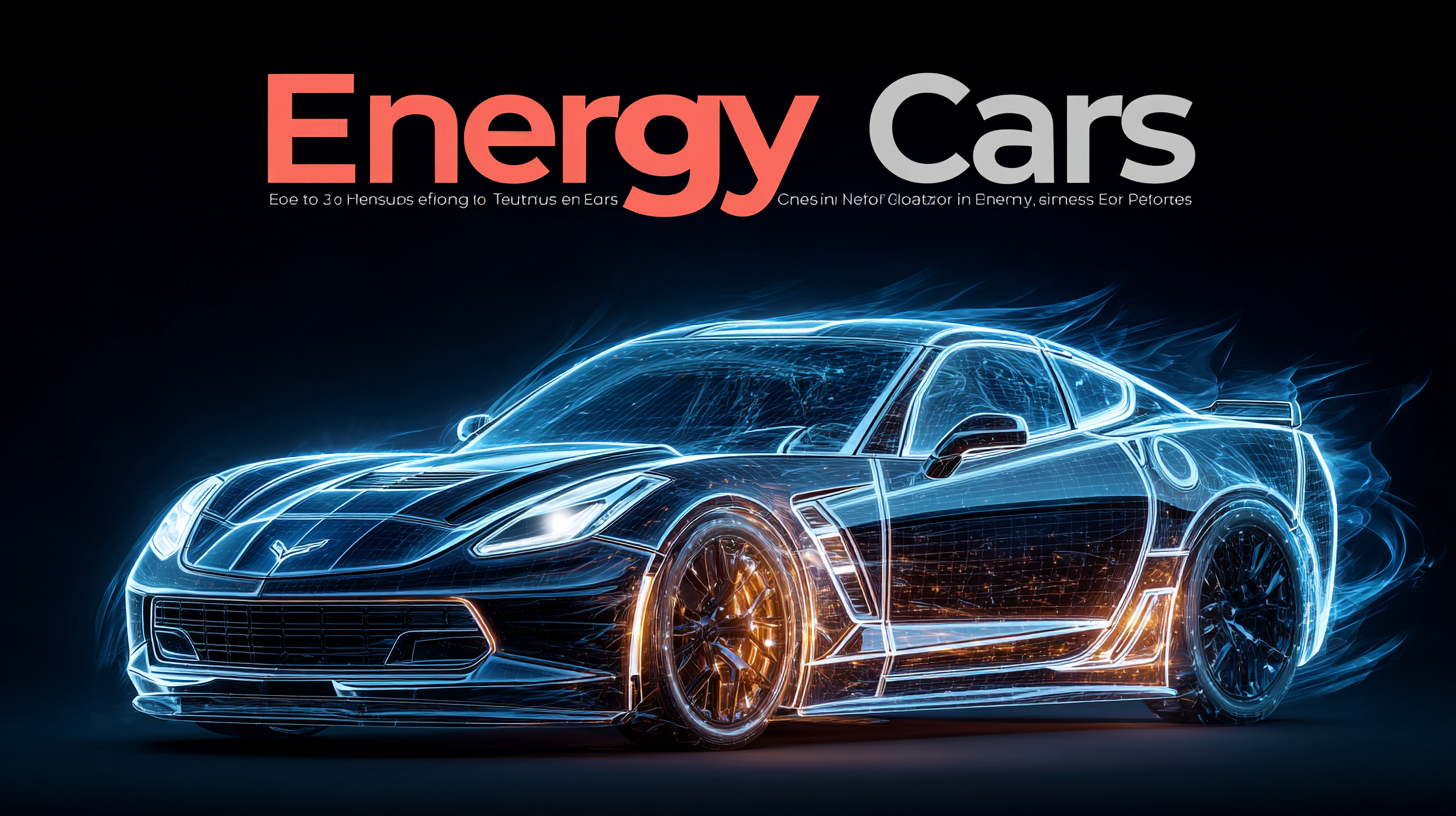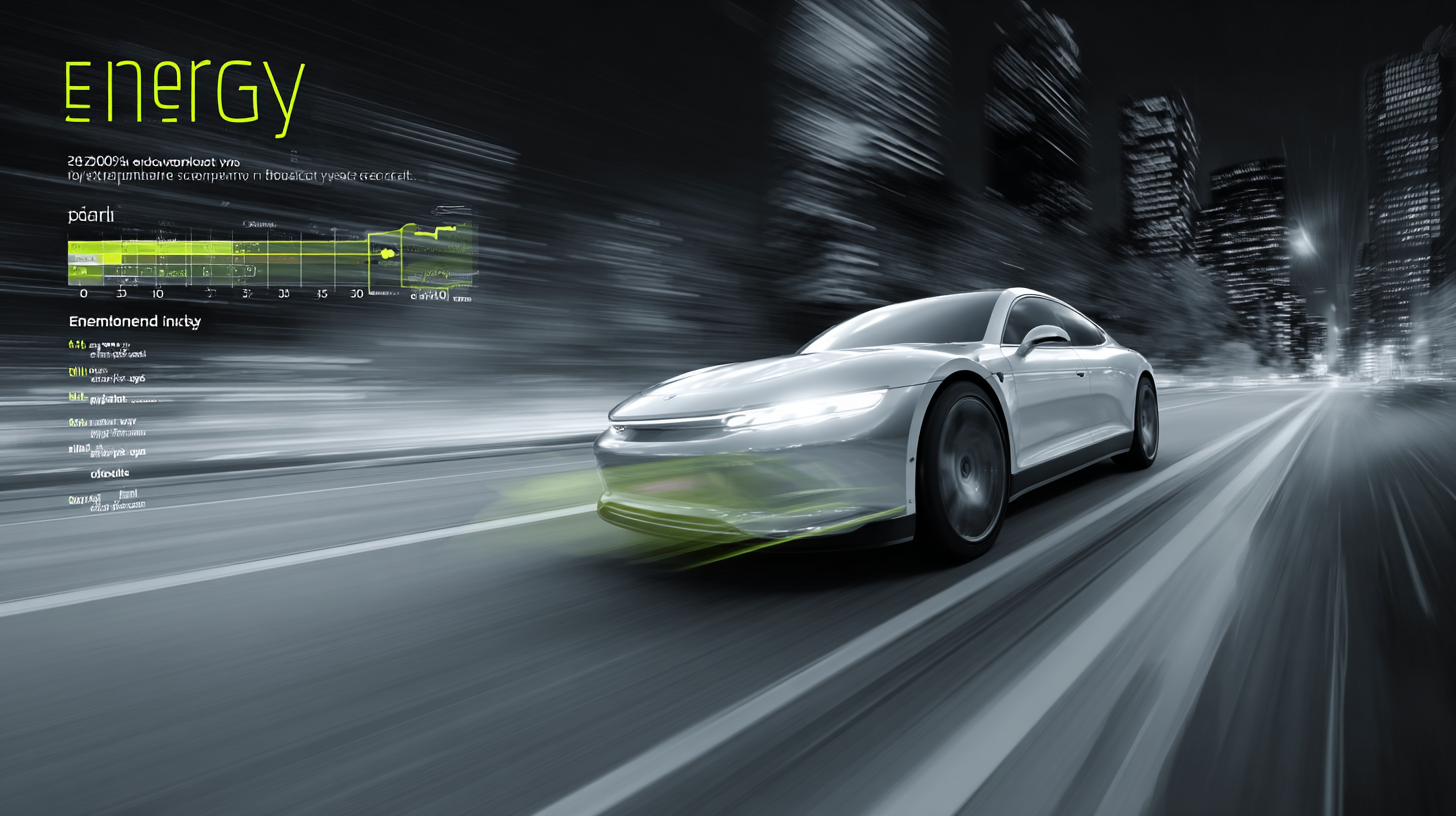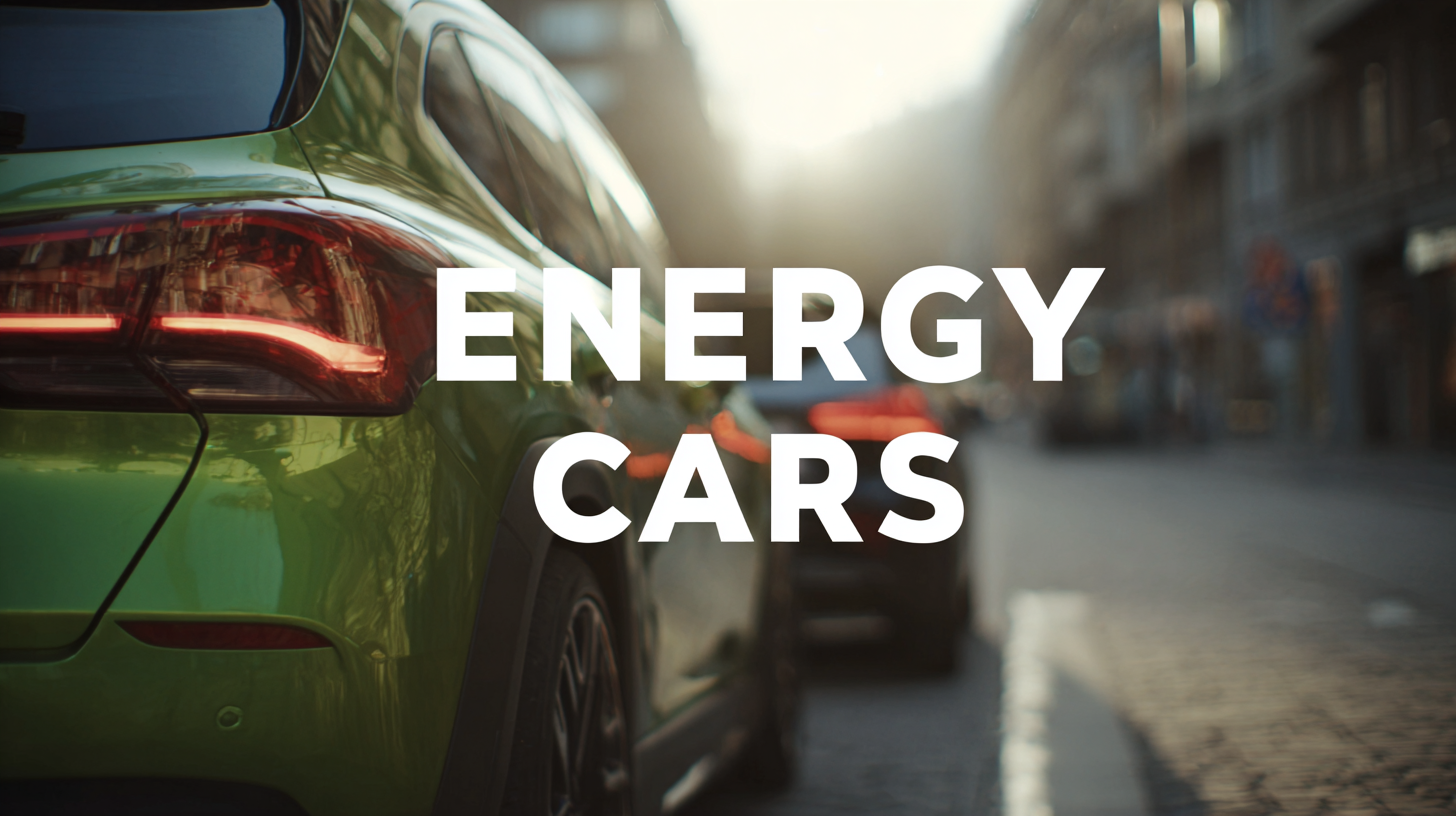Leave Your Message
As we approach the pivotal year of 2025, the automotive industry is witnessing a remarkable shift towards sustainability, with "Energy Cars" at the forefront of this revolution. According to a recent report by the International Energy Agency (IEA), the global electric vehicle (EV) fleet is expected to surpass 145 million by 2030, signaling a significant transition from traditional combustion engines to cleaner alternatives. The increased focus on reducing carbon emissions has led automakers to innovate and prioritize energy-efficient technologies, making it crucial for consumers to understand the benefits of various types of energy cars available in the market. By choosing the right energy car, not only can individuals contribute to a more sustainable future, but they can also take advantage of potential savings on fuel and maintenance costs. In this blog, we delve into the essential insights for navigating the energy car market and making informed choices that align with environmental goals and personal preferences.

When choosing energy cars for a sustainable future, several key factors must be considered to ensure both environmental benefits and personal satisfaction. One primary aspect is understanding the various vehicle types available, such as electric vehicles (EVs) and hybrid models. While EVs promise zero tailpipe emissions, hybrids offer a balance between traditional fuel and electric power, making them an attractive option for those transitioning to greener choices without complete reliance on charging infrastructure.

Tips: Research the incentives and tax benefits available in your region, as government policies can significantly reduce the overall cost of an energy car, fostering greater accessibility for consumers. Additionally, evaluate the charging infrastructure in your area before making a purchase. Access to convenient and fast-charging stations is crucial for maximizing the utility of your new vehicle.
Another important consideration is the market development trends. For instance, the electric vehicle market is anticipated to thrive, with countries like Norway leading the charge toward a future dominated by electric cars. Monitoring market forecasts, such as the projected growth in low-speed electric vehicles, can empower buyers to make informed decisions that align with sustainable practices over the long term.
The evolution of energy cars has gained momentum in recent years, particularly with the rise of electric and hybrid vehicles. Electric cars operate solely on electric motors, providing zero tailpipe emissions and an increasingly efficient performance as battery technology advances. The International Energy Agency (IEA) reported that global electric car sales reached a record high in 2020, and projections suggest that electric vehicles (EVs) could account for nearly 30% of total car sales by 2030, making them a crucial player in the push for sustainable transportation.

Hybrid vehicles, particularly plug-in hybrids, represent a transitional solution between traditional internal combustion engines (ICE) and fully electric models. These vehicles combine a gasoline engine with an electric motor, allowing for reduced fuel consumption and lower emissions. A recent comparative review on energy management strategies for hybrid electric vehicles (HEVs) reveals that different architectures of hybrid powertrains can offer various benefits and drawbacks, such as improved fuel efficiency and driving range while challenging conventional understanding of vehicle performance. With the right understanding of these energy technologies, consumers can make informed choices for a more sustainable future.
When considering a shift towards energy-efficient vehicles, understanding energy efficiency ratings is crucial. These ratings offer insights into the performance of different models, highlighting how much energy they consume relative to their output. Typically expressed in miles per gallon (MPG) or equivalent miles per gallon (MPGe), these metrics help consumers gauge how well a vehicle utilizes energy. A higher rating indicates better efficiency, meaning lower fuel costs and reduced environmental impact.
Moreover, energy efficiency ratings can vary significantly among electric, hybrid, and traditional vehicles. While electric cars are often celebrated for their low environmental footprint, hybrids bridge the gap by combining gasoline engines with electric power to enhance fuel economy. It's important to analyze these ratings alongside other factors such as the vehicle's range, battery life, and overall maintenance costs. By focusing on energy efficiency ratings, consumers can make informed choices that not only contribute to a sustainable future but also align with their personal transportation needs.
| Car Model | Energy Efficiency Rating (MPGe) | Electric Range (miles) | Battery Capacity (kWh) | CO2 Emissions (g/km) |
|---|---|---|---|---|
| Model A | 121 MPGe | 302 miles | 75 kWh | 0 g/km |
| Model B | 110 MPGe | 250 miles | 60 kWh | 0 g/km |
| Model C | 95 MPGe | 230 miles | 50 kWh | 58 g/km |
| Model D | 134 MPGe | 330 miles | 82 kWh | 0 g/km |
| Model E | 115 MPGe | 275 miles | 70 kWh | 0 g/km |
As we progress into 2025, the influence of battery technology on sustainable vehicle performance cannot be overstated. Recent advancements in electric vehicle (EV) battery design have significantly improved efficiency, longevity, and charging capabilities, all of which are crucial for a sustainable automotive future. Innovative battery management systems are not only optimizing performance but are also reducing the overall environmental impact of EVs. This technology evolution is key as we strive to meet global sustainable development goals, underscoring the urgent need for widespread adoption of electric vehicles.
Moreover, developments such as breakthroughs in battery coolant technology highlight the ongoing efforts to enhance EV performance, even under extreme conditions. For instance, engineers have recently unveiled a lithium-ion battery capable of charging six times faster in cold weather, illustrating how targeted innovations can overcome barriers to electric vehicle accessibility. As the global electric vehicle battery market continues to expand, driven by rising consumer demand and technological advancements, it is evident that selecting the right energy cars hinges on understanding and leveraging these critical battery technologies for a truly sustainable future.
As the automotive industry undergoes a significant transformation with the rise of electric vehicles (EVs), understanding the long-term value of energy cars has become critical for consumers making informed decisions. Cost versus benefit analysis reveals that while the initial purchase price of EVs may be higher than traditional fuel-powered vehicles, they often provide substantial savings in terms of fuel and maintenance costs over time. In addition, government incentives and rebates contribute to lowered overall expenses, making energy cars an increasingly attractive option for eco-conscious consumers.

Moreover, the shift towards sustainable transportation is not just a trend; it reflects a broader movement towards a cleaner environment and reduced carbon emissions. As the technology evolves, the performance and range of EVs continue to improve, addressing previous concerns about their practicality. With the integration of smart technologies and innovations in supply chain management, manufacturers are enhancing the quality and accessibility of energy cars, thus ensuring a sustainable future that is economically viable for consumers. This interplay of cost and benefit ultimately leads to more informed decisions and a collective effort towards environmental sustainability within the automotive sector.
